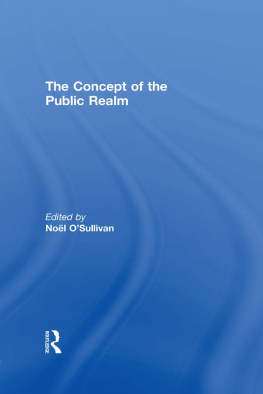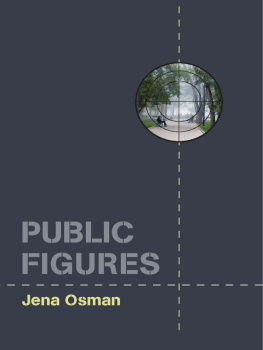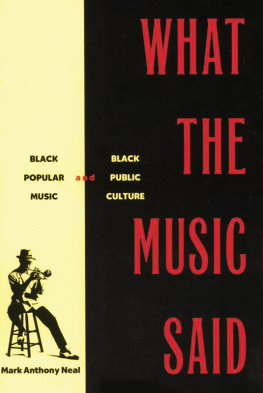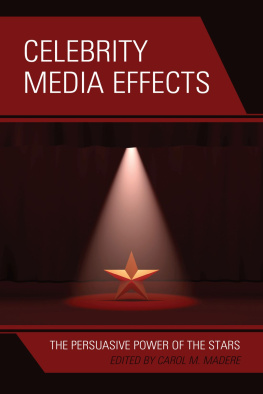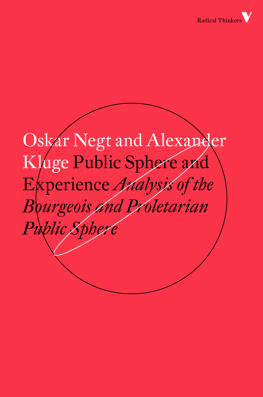Published by the University of Georgia Press
Athens, Georgia 30602
www.ugapress.org
2017 by the University of Georgia Press
All rights reserved
Designed by Kaelin Chappell Broaddus
Set in 11/13.5 Fournier MT Pro by Graphic Composition, Inc.
Printed digitally
Library of Congress Cataloging-in-Publication Data
Names: ONeill, Bonnie Carr, author.
Title: Literary celebrity and public life in the nineteenth-century United States / Bonnie Carr ONeill.
Description: Athens : The University of Georgia Press, 2017. | Includes bibliographical references and index.
Identifiers: LCCN 2017003987| ISBN 9780820351568 (hardback : alk. paper) | ISBN 9780820351575 (ebook)
Subjects: LCSH: American literature19th centuryHistory and criticism. | Authors, American19th centuryHistory19th century. | CelebritiesUnited StatesHistory19th century. | Popular cultureUnited StatesHistory19th century.
Classification: LCC PS201 .O54 2017 | DDC 810.9/003dc23
LC record available at https://lccn.loc.gov/2017003987
ACKNOWLEDGMENTS
ALTHOUGH MOST OF THIS BOOK CONTAINS NEW WORK, IT ALSO EXPANDS essays published several years ago. I am therefore called now to acknowledge professional debts that my creditors may have forgottenor, worse, think I have forgotten. It is a great pleasure to finally and formally say thanks. I could not have written this book without the resources of numerous libraries. In particular, I wish to thank the librarians at the American Antiquarian Society, the Houghton Library at Harvard University, the Concord (Massachusetts) Free Public Library, Washington Universitys Olin Library, and Wake Forest Universitys Z. Smith Reynolds Library. At Mitchell Memorial Library of Mississippi State University, I thank Hillary Hamblen Richardson, as well as librarians in the departments of Interlibrary Loan and Special Collections and the Ulysses S. Grant Presidential Collection.
The ideas for this book germinated at Washington University in Saint Louis, and I remain deeply grateful for the support of the English Department there, especially Vivian Pollak. At Wake Forest University, I benefited from a grant from the Archie Fund for Research in the Arts and Humanities. I wish to thank Eric Wilson, who was then the chair of the English Department, for his support. In 2005 I participated in an NEH summer seminar at the University of New Mexico titled Reading Emersons Essays. I am indebted to Russell Goodman for including me in that seminar, which profoundly influenced my thinking about both Emerson and the work of scholarship. I am grateful to my seminar group at the Futures of American Studies Institute in 2013, who gave me generous feedback on chapter 4 and encouraged me to write more fully about Barnum, a figure I find myself unable to elude. Here at Mississippi State University, I am fortunate to work in a department renowned for its collegiality. Warm thanks go to former department head Richard Raymond for fostering such a supportive environment, not to mention his professional guidance and continued support of my work.
Numerous people read and commented on individual chapters or portions of the manuscript. Their help was instrumental to helping me clarify and develop my ideas, and the book would be better if I had the insight to take even more of their good advice. I owe thanks particularly to Branka Arsi, David H. Blake, Kris Boudreau, Rian Bowie, Pete Degabriele, David Dowling, Stacy Kastner, Salah Khan, Kelly Marsh, Jason Phillips, and Ashley Reed. Tommy Anderson has been an indispensible guide to the publishing process and a great cheerleader. As I note above, portions of this book were published in different forms, and I am grateful for the guidance and feedback I received from editors and readers. An earlier version of my chapter on Emerson appeared in American Literature; I thank Priscilla Wald for helping a then-young professor navigate the review process. I also thank Sharon M. Harris and Theresa Strouth Gaul, who included an early version of the Fanny Fern chapter in their volume Letters and Cultural Transformations in the United States, 17601860 (Ashgate, 2008). Donald E. Pease wrote a signed review of my article on Whitmans early journalism, which was subsequently included in a special issue of PMLA; I am grateful to him, as well as to a second anonymous reviewer at PMLA, who helped me improve that essay. Wes Mott invited me to contribute an essay, Fame, to his collection Emerson in Context (Cambridge University Press, 2014), and in doing so he helped me refine my thinking about Emersons relationship to mass culture.
I wish to thank the three readers who reviewed my manuscript for the University of Georgia Press, especially one who read it more than once and supported the project at every stage. Thanks to Sydney Dupre for bringing me and my project through the transitions at the Press. Hearty thanks to Walter Biggins, acquisitions editor at Georgia. Walter first expressed interest in this project several years before I was ready to send it out, when he was at another press. It was some kind of kismet to have landed at Georgia together. Thank you also to Thomas Roche at the press and to Lori Rider for their attentive editing.
Finally, I thank my family, especially my parents, Doug and Jo-Anne Carr; my siblings, Heather, Ian, and Meagan; and their families for their unflagging confidence. My son, Rex, arrived in the middle of everything, and he brought so much energy, curiosity, and fun. My husband, Bryan, has done everything possible to give me space and time to do my work, thereby ensuring our partnership will outlast this project. I cannot thank him enough. This book is dedicated to these two, Bryan and Rex, the heart of my own private sphere.
LITERARY CELEBRITY AND PUBLIC LIFE IN THE NINETEENTH-CENTURY UNITED STATES
INTRODUCTION
CELEBRITY CULTURE IN THE PUBLIC SPHERE
IN AN ESSAY OCCASIONED BY HIS READING OF JAMES ELIOT CABOTS A Memoir of Ralph Waldo Emerson, Henry James reflects on the reputation and literary merits of the Concord Sage. For James, Emersons great contribution, the reason that indeed we cannot afford to drop him, is that he did something better than any one else; he had a particular faculty, which has not been surpassed, for speaking to the soul in a voice of direction and authority. Emersons success lies less in his message than in his manner, his ability to communicate with his audiences. In Jamess rendering, Emerson is himself a representative man in his fitness to his time and place: In what other country, on sleety winter nights, would provincial and bucolic populations have gone forth in hundreds for the cold comfort of a literary discourse? This cold comfort is Emersons gift to his countrymen, the sense of improvement and insight that comes with attending the public lecture outside of ones regular vocation. Looking to Emersons potential fame, James concludes that if Emerson goes his wayif he continues to appeal to audiences in the futureon the strength of his message alone, the case will be rare, the exception striking, and the honor great. Writing less than a decade after Emersons death, James wonders whether Emersons legacy will transform from celebrity, a temporary appeal to a mass audience of his contemporaries, into fame, the durable reputation for greatness.



